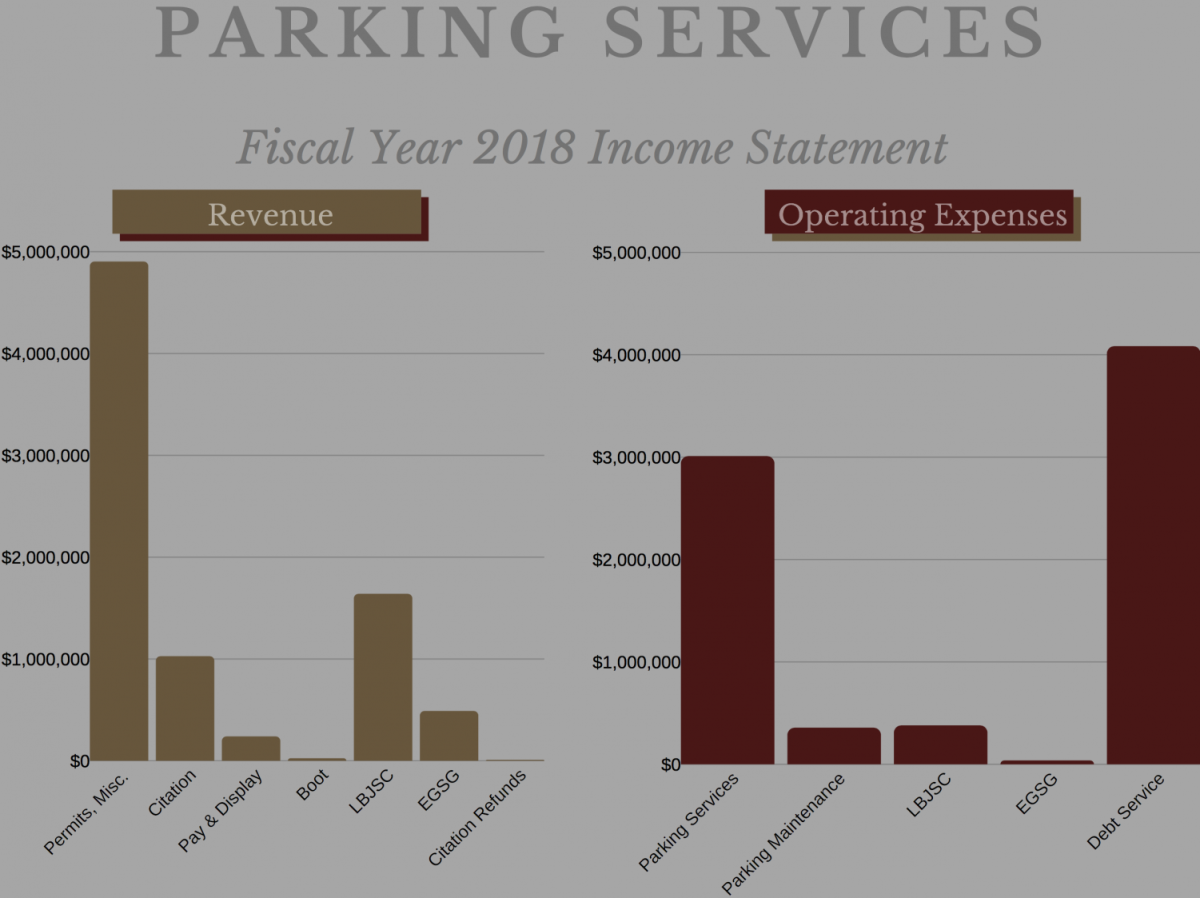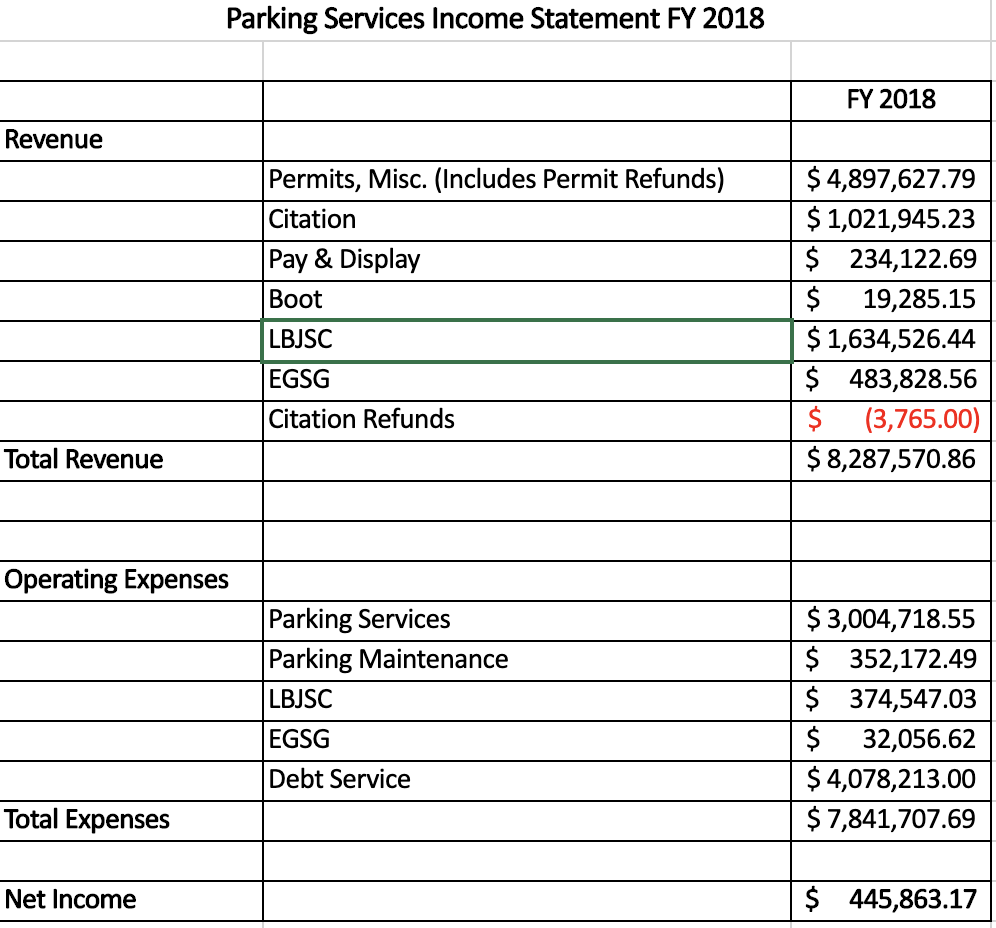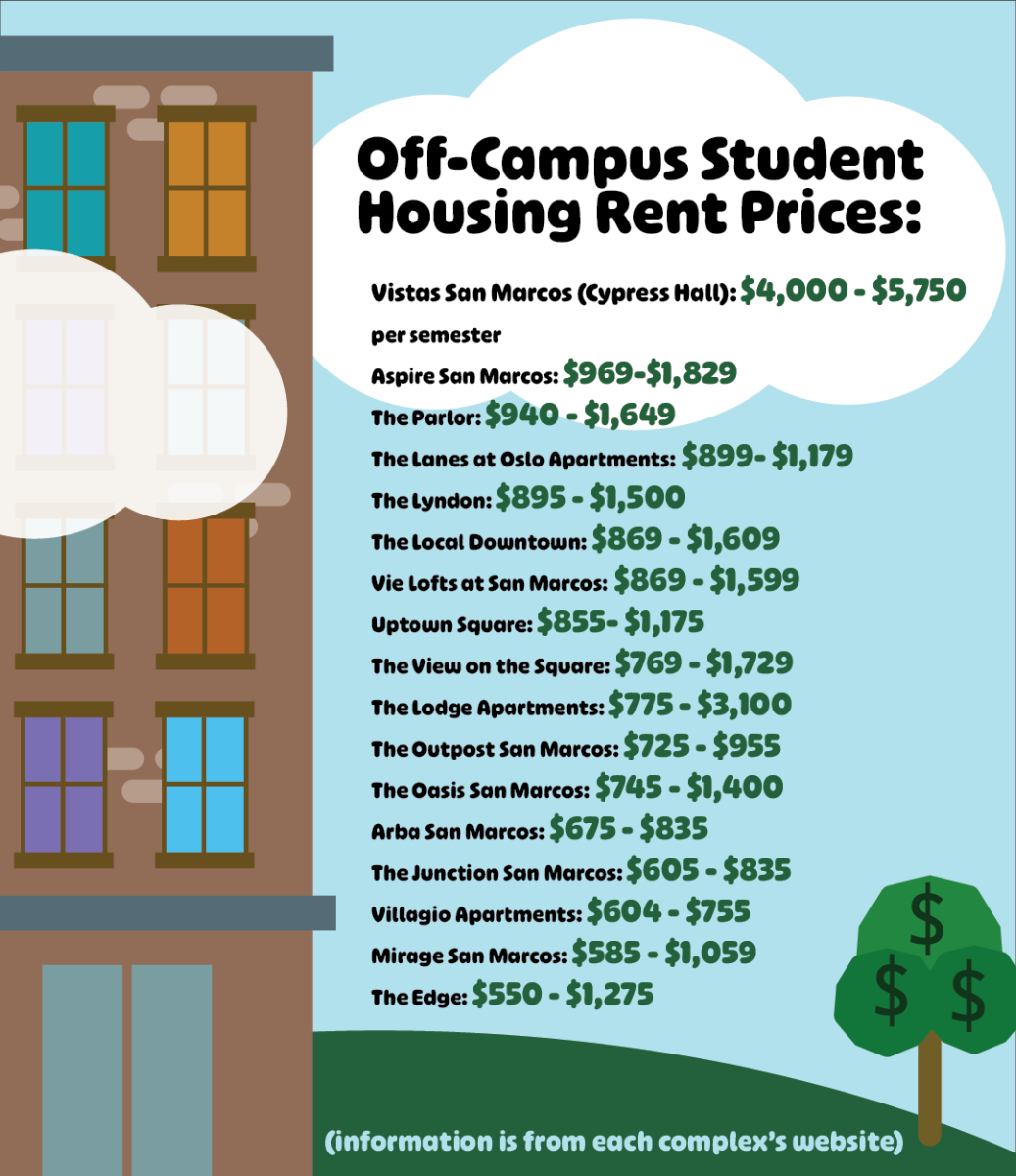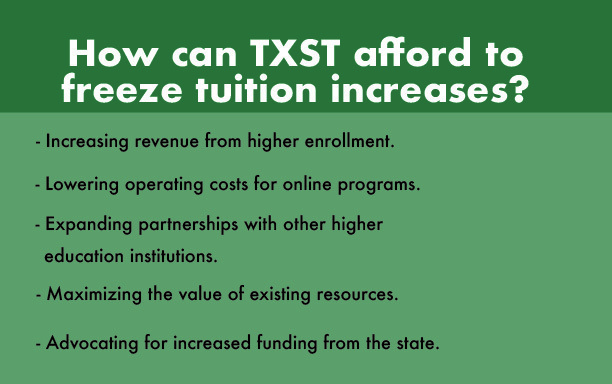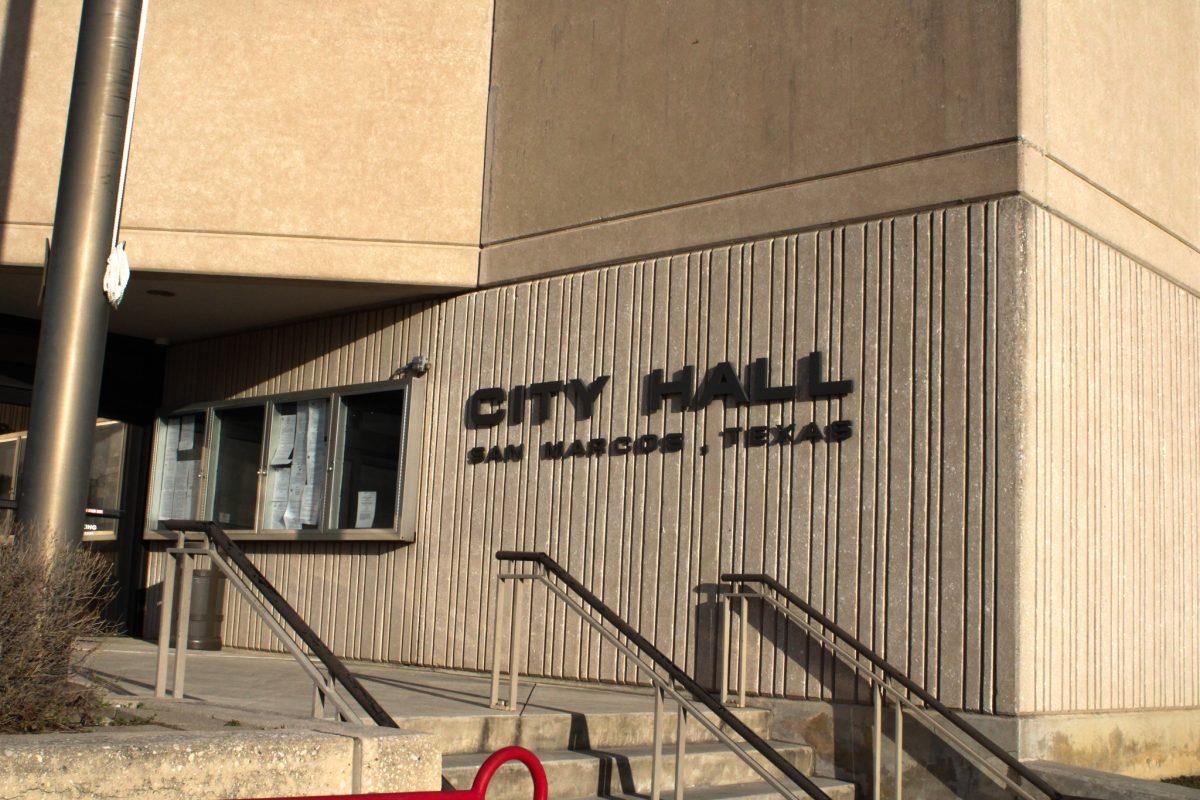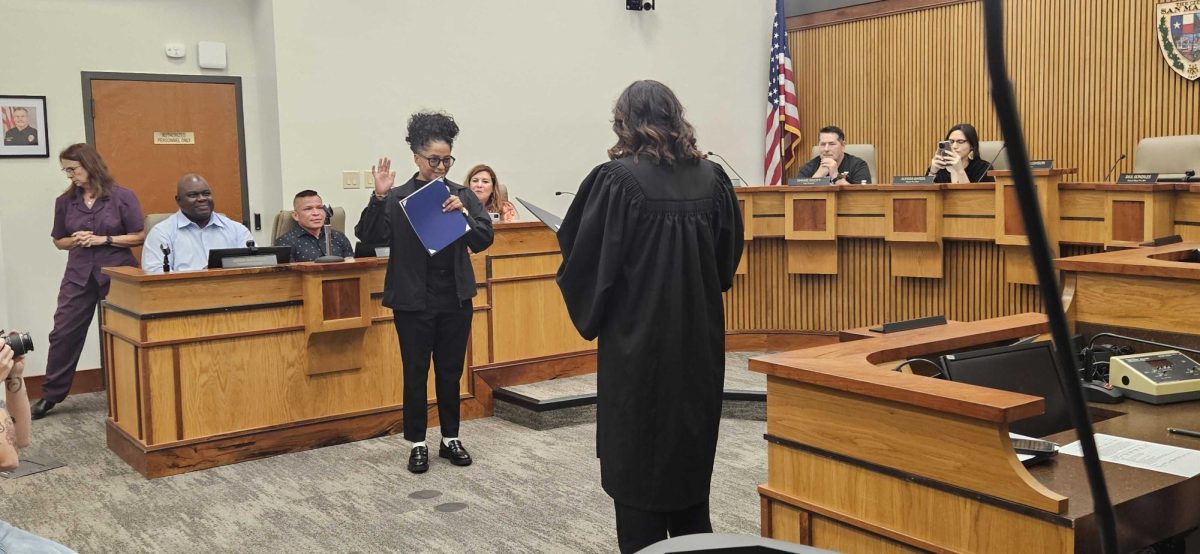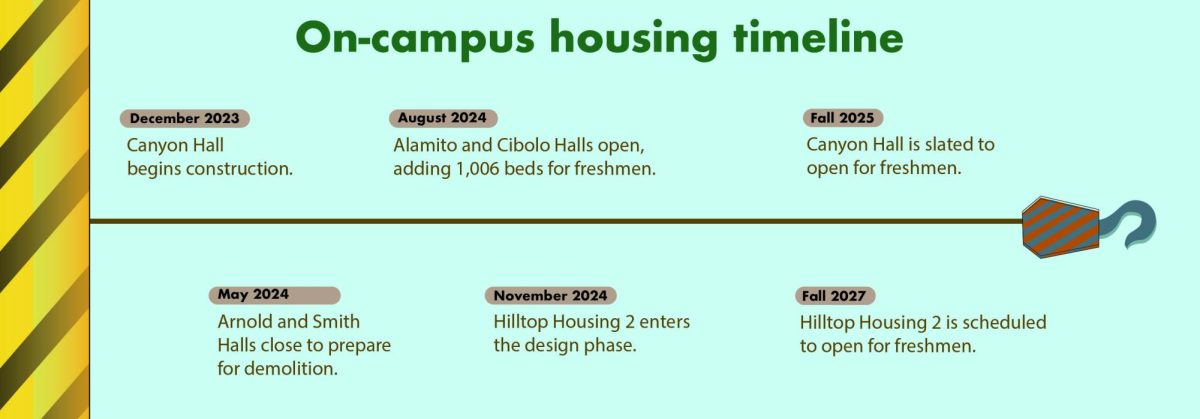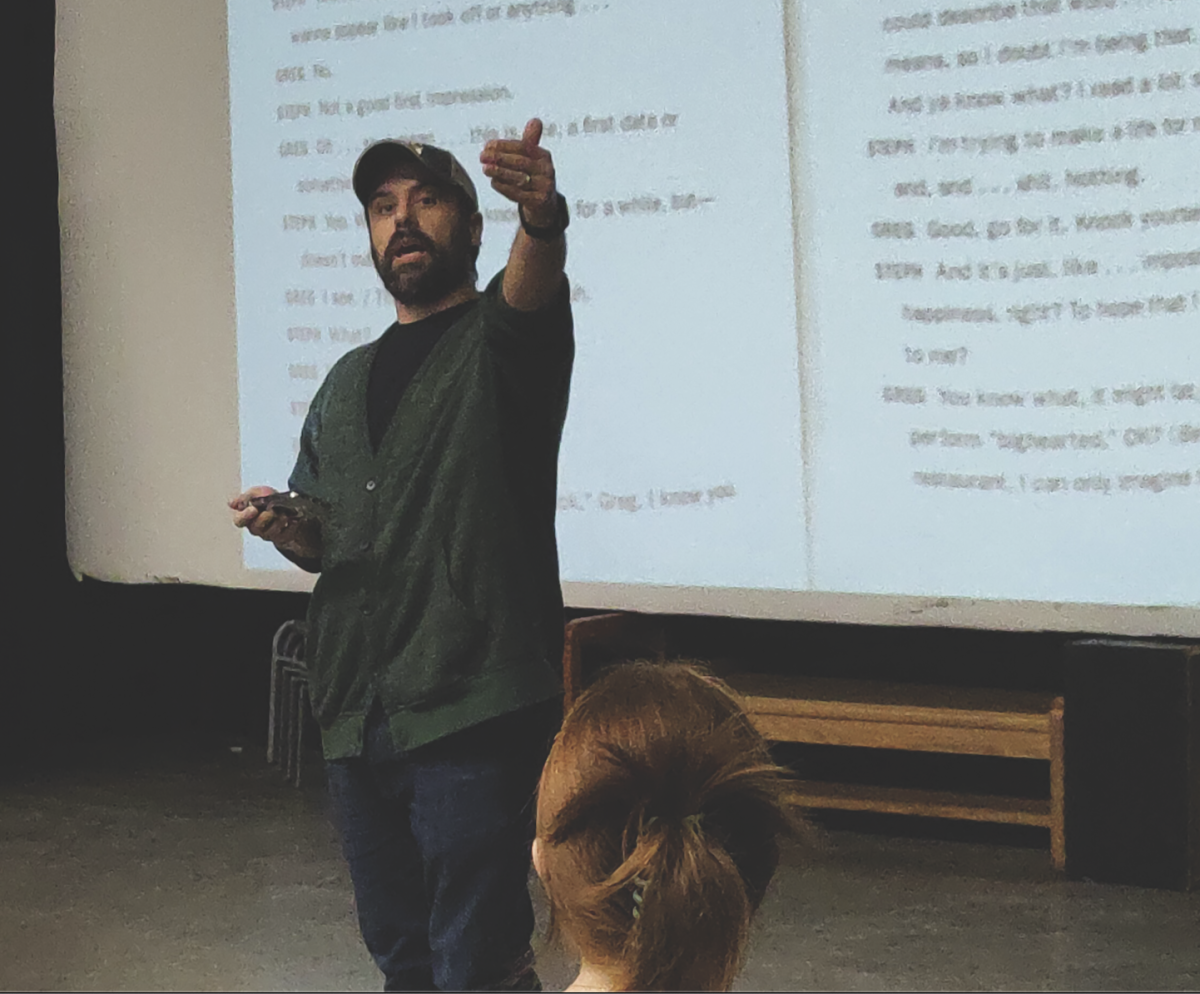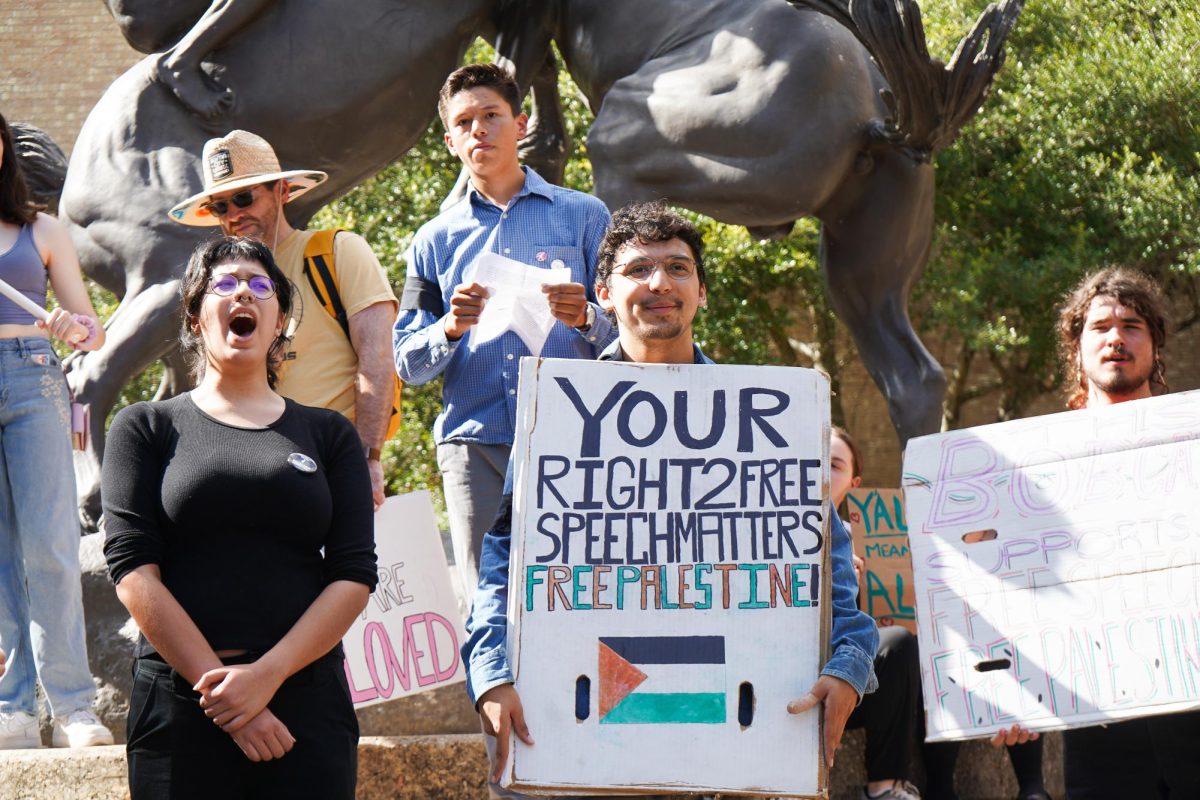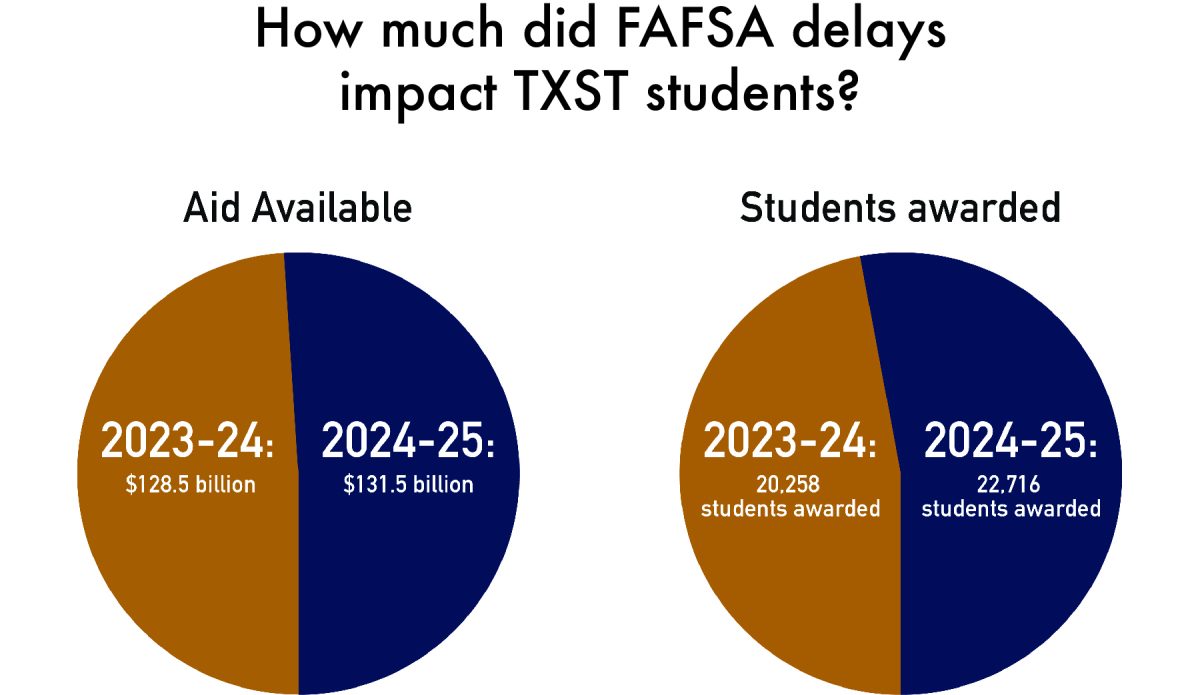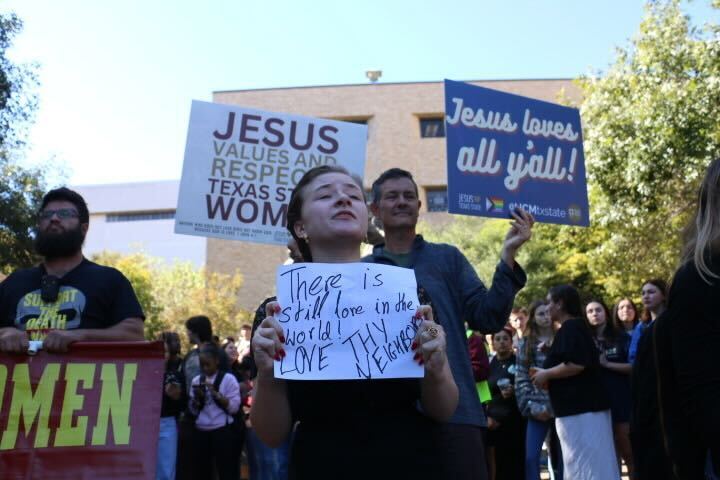Texas State’s Parking Services is nothing short of complex, but it is not the money-hungry monster students may perceive it as.
Parking Services is a financially self-supported branch of the university. Texas State does not give Parking Services any general funds to operate; its budget is based on permit sales, the use of pay garages, pay and displays, boots and ticket revenue.
In 2018, Parking Services accumulated $8,287,870.86 in total revenue, with operating expenses totaling $7,841,707.69. Its net income balanced at $445,863.
It is not unheard of for students to feel like there is limited parking on campus. Columns have been written, tweets have been sent and students have continually voiced their opinions.
In 2018, Parking Services sold 20,165 parking permits, which is 8,752 more permits than the number of parking spaces currently available.
With Parking Services financially independent, it virtually needs those permit sales to meet its budget.
Moreover, Parking Services does not set or create any rules. New regulations and changes to the policy are set by Transportation Services, which includes the Transportation Services Advisory Council.
The council — made up of several faculty, staff and students — meets every month to recommend and discuss issues, policies and anything else transportation-related.
Transportation Services Advisory Council Chair and Director of Transportation Services, Steven Herrera, believes certain levels of enforcement must be put in place to ensure students are parking in the right spaces.
“Parking Services is the enforcement arm of imposing the rules and regulations,” Herrera said. “We must maintain that enforcement piece to ensure everybody is within the rules and within the areas their (permit) is designated for.”
Associate Director of Parking Services Stephen Prentice debunked the student-crafted theory that Parking Services has a quota or goal for a number of tickets it needs to meet per month. Prentice said his quota would be to not write any tickets.
“We go out to enforce the rules,” Prentice said. “If everyone was parked legally, we would write no tickets.”
Prentice said because Parking Services is self-supported, it does strive to meet its budget. In 2018, Parking Services sold $4,897,627.79 in permits — its biggest source of income.
“If I predict in the future I need ‘x’ number of permits purchased to meet our budget, I’m going to write that on a piece of paper,” Prentice said. “But if everyone decided not to buy a permit, then we wouldn’t get any revenue.”
Herrera said Transportation Services receives questions regarding future expansion plans and more parking. Many of the answers can be found by looking at the Campus Master Plan, a ten-year agenda that maps out specific renovations and additions to the university.
“(The master plan) really defines what future facilities and infrastructure will be brought to the university,” Herrera said. “That is always a great place to try to look and understand what’s going on.”
The master plan currently recommends the parking system expand up to 2,000 parking spaces by 2027, reserve land for three new parking structures and incrementally migrate parking from campus core to perimeter facilities.
Additionally, the plan lays out providing enhanced transit services from remote parking resources directly to the campus core and enhancing technologies that support transit, parking and mobility.
The master plan notes there is an annual debt service for Parking Services. The university pays approximately $4.1 million per year to pay off the construction of several parking garages on campus.
It states the revenue from parking permits is responsible for paying this annual debt service. Expected permit sales must be monitored and permit prices may be adjusted each fall to ensure the parking system is financially solvent.
One of the midterm recommendations for the next six to 10 years noted in the master plan is the construction of a new parking garage on West Holland Street. The estimated cost is $28,917,000.
Creating more parking spaces or building a new parking garage is not an overnight process.
“It’s a lengthy process that is put in place to ensure it is well-looked at and considered in the overall scheme of the campus,” Herrera said.
The newest parking lot placed in front of the Bruce and Gloria Ingram Hall is expected to be completed in late 2019.
There have been several ideas presented on behalf of students regarding how more parking spaces could potentially be created.
A University Star opinions column by former columnist Otto Bieker proposed the university should ban freshmen from parking on campus. Herrera responded to the idea by insinuating there is enough parking available already.
“We have a lot of capacity in our commuter lots,” Herrera said. “If you want to take the opportunity to use the (shuttle) services there’s plenty of parking capacity in those areas.”
Student Government President Corey Benbow has met with Vice President of Finance and Support Services Eric Algoe to discuss how Parking Services could potentially be restructured.
Benbow said opening up parking on Fridays at noon to all colored passes and reducing fees after 6 p.m. and on the weekends in the LBJ Student Center garage are changes he would like to see Transportation Services make in the immediate future.
“Those are immediate things that (possibly) could happen,” said Benbow. “When we’re talking about building garages or parking spaces, those are things that take a lot longer.”
Prentice believes the biggest misconception when it comes to Parking Services is the individuals working there are different from the rest of the community.
“(We) have folks here that are alumni at Texas State; (their) children go to school here,” Prentice said. “It’s not some vicious group of people that are out to catch everybody.”
Moving forward, Transportation Services will be discussing and potentially changing some of the current rules regarding hangtags and physical permits.
Parking Services will continue to enforce the law of the land. Student Government Vice President Tucker Thompson said Student Government will continue to advocate for a better parking and transportation system for its student body.
“We always have the (best) interests of the students in mind,” Thompson said. “It is our job to really hold the (university) administration accountable.”
Note: This article indicated that the estimated cost of a parking garage on Lindsey Street was $34,965. Although that number is indicated in Texas State’s Campus Master Plan, it was changed in this article to an example of another potential parking garage on West Holland Street estimated at $28,917,000 for clarity purposes.
Categories:
The workings of Parking Services, what students can expect
May 9, 2019
A bar graph displaying Parking Services’ revenue and operating expenses in 2018. Graph by Jaden Edison
0
Donate to The University Star
Your donation will support the student journalists of Texas State University. Your contribution will allow us to purchase equipment and cover our annual website hosting costs.
More to Discover


